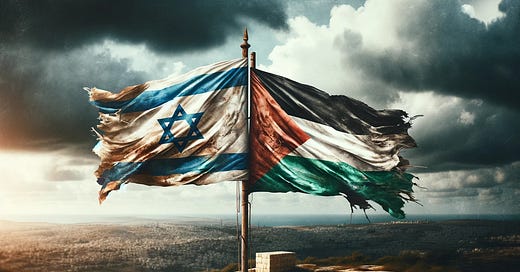A Spiral of Violence with Global Repercussions
As of today, the backdrop of the Israel-Hamas conflict, triggered on October 7, 2023, continues to be bleak and intricate. The initial coordinated assault by Hamas—a Palestinian militant organization governing the Gaza Strip—saw at least 5,000 rockets launched into Israeli territory, garnering a diverse array of reactions on the global stage. Algeria vociferously condemned Israel's retaliatory bombings in Gaza, while Angola championed restraint and dialogue. The U.S., among other nations, voiced concerns amidst the escalating hostilities.
The ongoing strife witnessed Israeli forces advancing towards Gaza City, engaging in intense confrontations with Hamas militants. The human toll has been harrowing, with Palestinian casualties surpassing 9,000 and Israeli deaths exceeding 1,400, primarily during Hamas' inaugural assault. Additionally, over 240 individuals were taken hostage in southern Israel, adding another layer of complexity to the already volatile situation.
Israel, undeterred by rising international pressure, remains steadfast in its military endeavor to dismantle Hamas and secure the release of hostages held by the militant group. The crisis deepened as Israeli airstrikes hit sensitive locales, including a recent strike on an ambulance convoy in Gaza City on November 4, 2023, resulting in at least 15 fatalities. The deteriorating humanitarian conditions in Gaza, marked by dwindling food supplies and overwhelmed medical services, have sounded alarm bells globally, with aid agencies heralding an unfolding humanitarian catastrophe.
The international dialogue surrounding a ceasefire is rife with challenges. U.S. Secretary of State Antony Blinken entreated Israel to permit aid into Gaza, proposing a humanitarian pause. However, Israeli Prime Minister Benjamin Netanyahu spurned this proposal, insisting on the release of hostages as a prerequisite for any cessation of hostilities. Despite growing calls for a ceasefire, both the U.S. and Israel showed a semblance of willingness to consider localized pauses to alleviate humanitarian distress.
On the diplomatic front, efforts to mediate the crisis are gaining traction. A recent conclave hosted by Jordan saw a meld of Middle Eastern and North African nations alongside U.S. emissaries, converging to explore peaceful resolutions. Moreover, France has slated a humanitarian conference for Gaza, reflecting a burgeoning international endeavor to ameliorate the calamitous scenario.
The persistent Israel-Hamas conflict stands as a focal point of global concern, prompting nations worldwide to react and endeavor to mediate, aiming to stymie further escalation and humanitarian degradation in the region. As the world watches with bated breath, the quest for a lasting resolution continues, underscoring the broader implications of this conflict on global peace and security.




